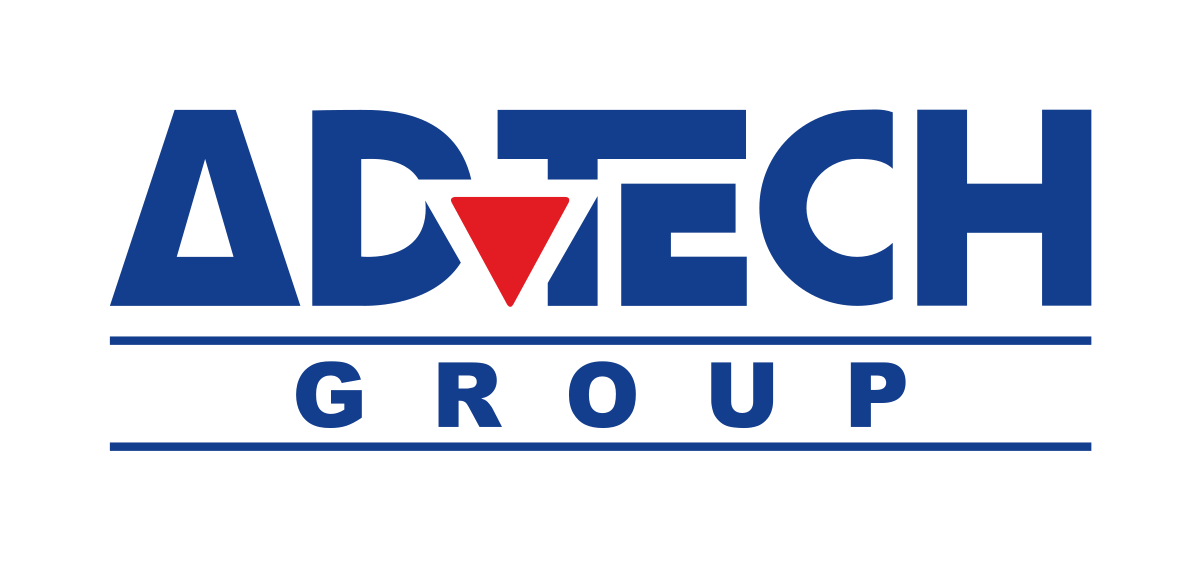Technology in the classroom - a South African perspective
By Candice Joubert, Charterhouse Pre-Primary School
It seems that at the moment no social gathering can go by without South Africa’s economic future being a topic of discussion. And with good reason. Our current unemployment rate sits at 29%, the highest it has been since 2008. Regardless of how patriotic you may be (#imstaying), it would be hard to consider that as anything other than dire.
A recent McKinsey paper found that adopting digital technologies early could result in a net gain of 1.2 million jobs for South Africans by 2030. It is also predicted that productivity growth would be tripled and per capita income doubled. Filling these jobs would require graduates with higher life skills and strong technology-related backgrounds. Our South African reality, however, is that many learners attending schools are from homes without a strong technological infrastructure. In its General Household Survey, Statistic South Africa found that close to 90% of households in South Africa do not have access to the Internet at home. Computer ownership only currently sits at 21.5%. The responsibility, therefore, rests on the Education sector to ensure that these graduates will be available, at a scale large enough to fill projected demands.
Early introduction of technology in schools is important to close the gap between our current situation and where we need our future graduates to be. It is predicted that by 2031 all repetitive tasks will be replaced by robots, so it is no longer enough to merely teach a child how to use a computer. Children need to be taught those skills that robots cannot do. According to Michelle Lissoos, Managing Director of Think Ahead, these skills include empathy, creativity, and higher cognitive thinking. Using technology to teach these human characteristics might seem contradictory, but technology can open doors for children which would otherwise be impossible in certain home situations.
Technology can, first and foremost, provide opportunities for children without the means at home, to become technologically literate at an early age. Technological literacy goes further than digital literacy, in that children with strong technological literacy are able to use, manage, understand and assess technology, and not just be comfortable being immersed in it. These children will be able to use technology specifically for their benefit.
There are many situations where educators can utilise technology to spark creativity within learners. Learners with a lack of resources in the home can be exposed to music, dance, drama, art and photography through the use of quality apps. In the absence of available materials, Auryn Ink allows students to create realistic looking watercolour artworks on a classroom iPad. Need a space for learners to create and share stories? Storyrobe provides an educator with the platform to do just that. A quick internet search returns countless further apps that could be used to encourage expression and creativity.
Most educators are aware that the best way to teach empathy is to model empathy. By watching their teachers show compassion in various situations, children learn to empathize with, and show better understanding towards, others. Technology can never replace this. It can, however, be used as a successful supplement to an already understanding and forgiving classroom. Technology can be used to broaden a child’s perspective by researching how those in other parts of the world live, the problems they face, and the hopes they have for their future. For those situations where learners are passionate about a social issue, technology allows them to turn their empathy into action. Funds can be raised through platforms like givengain.com. Awareness of a cause can be generated through social media, or learners could have their voices heard through the creation of online petitions. Technology could ensure that children take action at the moment they feel called to do so.
Although many feel that it results in passive engagement, correctly vetted and selected technology can greatly assist with higher order thinking. One aspect of higher order thinking is analysis. The more information children have on a particular subject, the more thorough their analyses. The Internet allows for learners to retrieve vast amounts of information on any number of subjects, which results in a greater challenge when it comes to forming conclusions and opinions. An online message board could encourage learners to debate a particular topic outside of classroom time, giving them the opportunity to research and support their opinions. Even our youngest learners can develop their thinking skills by making use of fun, engaging tools like Terrapin’s Bee-Bots. These programmable robots are designed specifically for young children, and can be used in the classroom for all manner of problem solving. Young learners will communicate and collaborate while manipulating the Bee-Bot through and along obstacles, solving problems as they encounter them and learning from prior mistakes.
A new kind of adult is needed for the future South Africa. Technology is how we enable our children to become those adults. Educators need to move towards using technology as a tool to enable learners to become creative, empathetic, higher-order thinkers. We already have the problems. It is time to start equipping our problem-solvers from a young age.
ADvTECH Updates
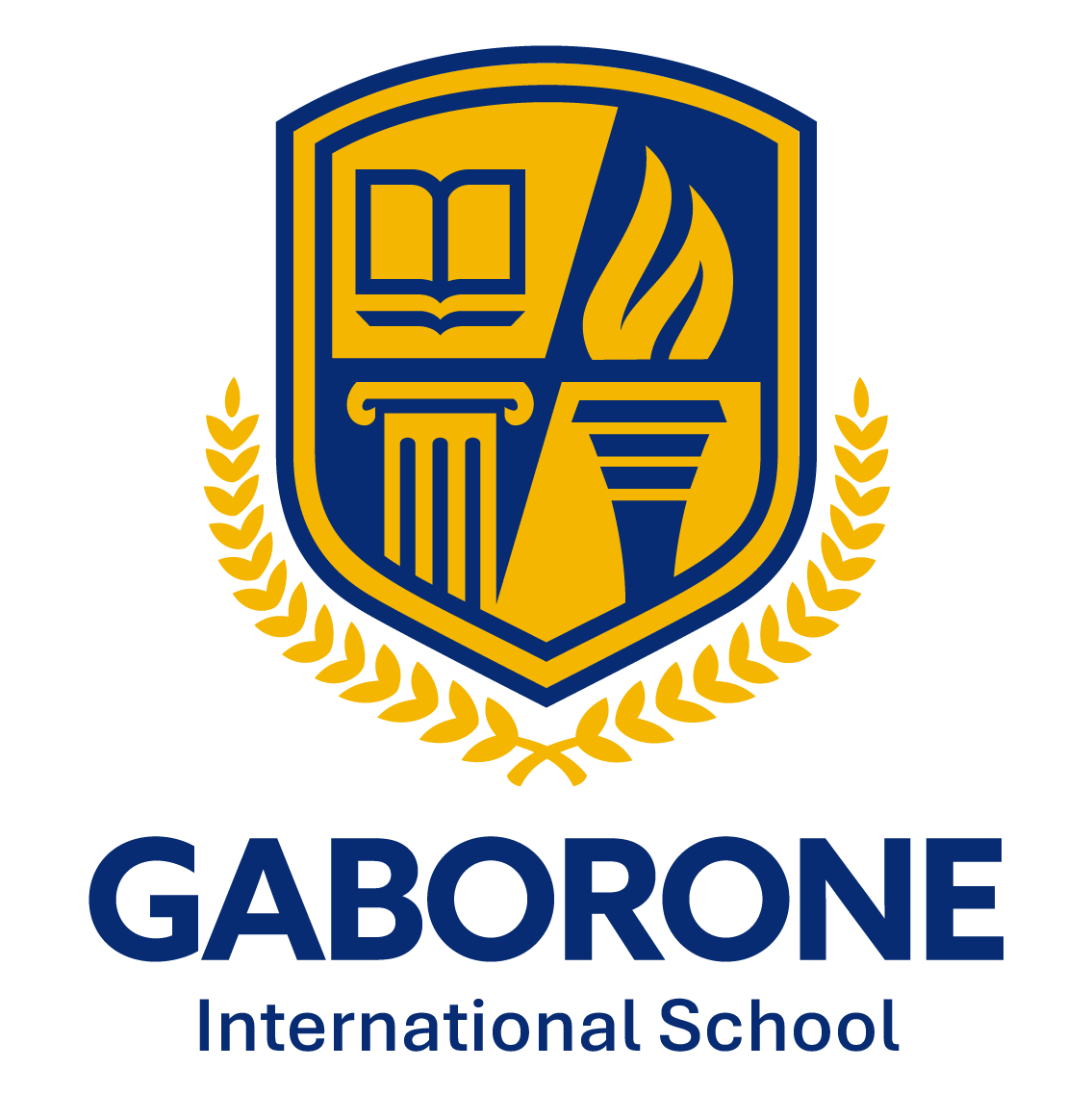
Gaborone, February 20, 2026 — Gaborone International School (GIS) today unveiled its new logo and brand identity, celebrating a significant milestone in the school’s growth and development in recent years. The launch forms part of a unified brand identity introduced across schools within the ADvTECH International Group, and strengthens the GIS positioning within the ADvTECH International family while reinforcing its leadership in delivering high-quality private education in Botswana. The new visual identity aligns Gaborone International School and Makini Schools (in Kenya) under a single designed logo, while each school retains its individual name, heritage, and local character. This honors the school's solid historical foundation while firmly positioning it for future excellence. “Over the past decade, GIS has undergone significant transformation across its academic programmes, facilities, and staff development. The refreshed logo reflects this future-focused journey and reinforces the school’s commitment to accessible, high-quality education rooted in strong values and academic leadership,” says Horace Mpanza, ADvTECH Regional Managing Director. The rebrand reflects GIS’s sustained growth, ambition, and unwavering commitment to preparing learners for a rapidly changing world, while remaining firmly rooted in its refreshed values of integrity, growth, excellence, and generosity of spirit. Since it acquired GIS in 2015, ADvTECH has invested millions into state-of-the-art infrastructure such as a modern Science and Technology Centre while expanding the pre-school and primary facilities, enhancing sports amenities, and the integrating advanced technology across the learning ecosystem. This includes the adoption of ADvLEARN and Guided Readers, AI-enabled platforms that deliver personalized, adaptive education in line with global best practice. “The refreshed brand identity aligns with our long-term vision to deepen the impact of GIS in Botswana’s education sector and the country’s wider economic prosperity. This milestone enhances GIS’s recognition as part of Africa’s leading private education provider, and supports its mission to drive innovation and student achievement to empower Botswana’s next generation of global citizens,” says Mpanza. SIGNIFICANCE OF THE NEW LOGO The school's culture has been characterized by five timeless motifs that are included in the new emblem: The Book , representing academic excellence The Torch and Flame , symbolizing inspiration and leadership The Pillar , reflecting strength and stability The Laurel Wreath , denoting achievement and honor · The Shield , standing for tradition and security Together, these elements affirm the school’s promise to deliver quality education while remaining grounded in tradition.
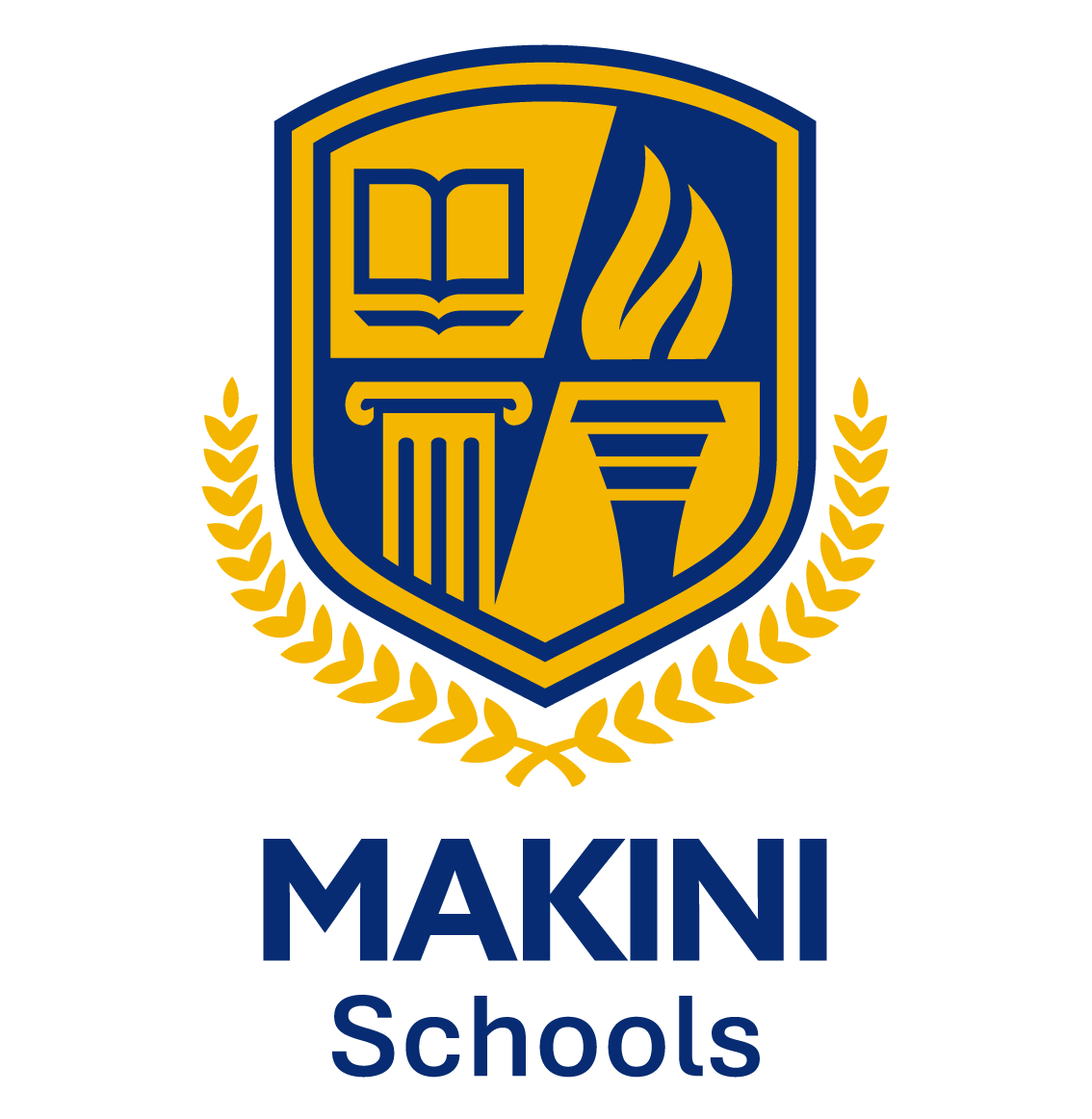
Nairobi, February 17, 2026 – Makini Schools will officially unveil its refreshed brand identity on Friday, February 20, 2026, marking a strategic evolution that strengthens its unified positioning and reinforces its leadership and credibility in the African education sector. The rebrand reflects Makini’s continued growth, ambition, and commitment to preparing learners for a rapidly changing world, while remaining firmly anchored in its values of integrity, growth, excellence, and generosity of spirit. While the visual identity has been modernised, the name Makini Schools remains unchanged, underscoring the institution’s confidence in its heritage and enduring legacy. At the centre of the refreshed identity is a new logo that symbolises confidence, clarity, and future-readiness. The new brand will be implemented across Makini Schools in Kenya and extended to other ADvTECH International schools across Africa, including Gaborone International Schools in Botswana. “This rebrand represents a strategic evolution of Makini Schools,” said Horace Mpanza, Regional Managing Director, Makini Schools. “While our visual identity has been refreshed, our name, our commitment to quality education remains unchanged. This new identity reflects who we are today and where we are headed as we continue shaping future-ready learners.” The refreshed brand builds on a sustained period of growth and investment. Makini Schools recently acquired Regis School, now rebranded as Makini Schools Runda. We have also strengthened our holistic offering through major investment in sports. We launched upgraded sports facilities at our Ngong Road and Kisumu campuses after investing over KSh 100 million. Across the institution, we continue to invest in modern sports and academic infrastructure, as well as digital learning tools that enhance instruction. This includes ADvLEARN, our AI enabled personalised learning platform, teacher laptops, and classroom projectors, all designed to support better teaching and stronger learner outcomes. Commenting on the role of technology in education, Mr. Mpanza emphasised the importance of preparing learners for an evolving labour market. “Artificial intelligence will undoubtedly change the nature of work, but it will also create new pathways that demand higher-order thinking, creativity, and adaptability. Our learners must be prepared for jobs and opportunities that may not yet exist.” Founded on the principle of delivering accessible, high-quality education, Makini Schools has built a strong reputation for nurturing well-rounded learners grounded in academic excellence, discipline, and strong values. The refreshed brand identity aligns with the institution’s long-term strategic vision to strengthen its presence across Africa and enhance recognition as it continues to scale. The announcement was made at a media roundtable held on Tuesday, February 17, where Makini leadership engaged education and business journalists in a broader discussion on the evolution of Kenya’s education system. The session underscored the critical role private schools play in shaping national education outcomes and emphasised the need for continued collaboration between private institutions, government, educators, and other stakeholders to strengthen implementation, drive innovation, and enhance learner readiness across the sector. “Our heritage is our foundation,” added Mr. Mpanza. “This rebrand honours our past while boldly positioning Makini for the next generation of learners.”

With all the start-of-the-year activities, ceremonies and celebrations now out of the way, the serious business of the Matric Class of 2026’s journey towards their final exams has now arrived. This year can feel overwhelming, not just for students, but for parents too, who often feel as though they are writing matric alongside their children. “Whether students are aiming for university entrance, considering a gap year, or simply focused on finishing strong, the culmination of twelve years of education comes down to the NSC results for which they will sit later this year,” says Darren Purdon, Academic Project Manager: Academic Centre of Excellence at ADvTECH and The IIE. “Matric is a year filled with excitement and responsibility. Many students take on leadership roles, plan their matric farewells, and prepare for valediction services. These events are memorable, but they also add to the pressure of maintaining strong academic performance. Mental health becomes a crucial factor, as students juggle multiple responsibilities and expectations,” he says. But, to start the year on the right foot, it is imperative for students to set clear academic goals. “APS scores are vital for university entrance, so students must understand the requirements and track their progress consistently. Parents can support this by creating a tracking sheet and having regular discussions with their child about their marks. These conversations should be constructive, offering motivation and support where needed,” says Purdon. Planning is essential to avoid burnout, he adds. “A monthly planner that includes all assessments and portfolio deadlines helps students stay organised. Establishing a study routine early in the year, with consistent daily habits, is far more effective than last-minute cramming. Using a wall planner or digital app to mark exam dates and assignment deadlines can make a big difference.” Portfolio pieces play a significant role in the final NSC mark. Students should aim to submit their best work and take advantage of opportunities to revise and resubmit tasks. Engaging with teachers for feedback is key. However, students must be cautious of plagiarism. While tools like ChatGPT and Microsoft Copilot are excellent for research, they should not be used to generate final submissions. Plagiarised work will be discarded and penalised, which can negatively impact results. “Many subjects allow students to select their highest-scoring portfolio pieces. This flexibility can be a strategic advantage if assessments are approached with preparation and effort. Starting assignments early allows time for reflection and improvement, leading to better outcomes. Students should reach out to teachers for guidance and use feedback to refine their work,” Purdon says. Very importantly, mental wellbeing must be prioritised throughout the year. Encourage short, focused study blocks followed by breaks, and promote healthy habits like regular exercise, balanced nutrition, and sufficient sleep. Stress management techniques such as journaling, breathing exercises, or short walks can help students stay grounded. Pressure is normal, the key is learning to manage it effectively. Thought Life Orientation is an after-thought? Think again. “Life Orientation is often overlooked, yet it can influence university residence applications. It’s a task-driven subject, making it easier to excel with proper planning and effort. Aim for a distinction, it’s achievable,” says Purdon. Active learning strategies such as summarising notes, teaching concepts aloud, using flashcards, and practising with past papers are highly effective. “Previous NSC papers are invaluable for understanding question formats and expectations. These resources are freely available online and should be printed and organised in subject-specific folders for easy access. “After each test, students should reflect on their performance: What went well? What needs improvement? This feedback loop is essential for growth. Taking notes in class and creating study summaries from day one will make exam preparation easier. Avoid studying late at night before assessments, and plan ahead to reduce anxiety and improve retention.” Reviewing Grade 11 content in key subjects like Mathematics, Physical Sciences, and Languages is also important. Study groups and peer tutoring can reinforce understanding, and regular check-ins with teachers or mentors can help identify and address challenges early. Focus on now, but also strategise the future. While the Matric year brings countless demands on your time and energy, planning your post-Matric path is equally crucial - especially if you plan to pursue further studies, Purdon says. “Start exploring your options right from the beginning of the year by thoroughly investigating all available pathways. Attend Open Days at as many public and private universities as possible to gain firsthand insight into campuses, programmes, and facilities. By acting proactively and keeping an open mind to the full range of possibilities, you'll reduce stress, make more informed decisions, and position yourself for a smoother, more successful transition into higher education.” This final year of school is not just about academics, it’s about balance, planning, and making the most of every opportunity. With the right support and mindset, students can thrive and finish strong, while hopefully reducing stress and anxiety, says Purdon. “Above all, students should remember to enjoy their final year of school. It’s a year filled with milestones and celebrations, and it passes quickly. Embrace the journey, plan wisely, and make the most of every moment.”
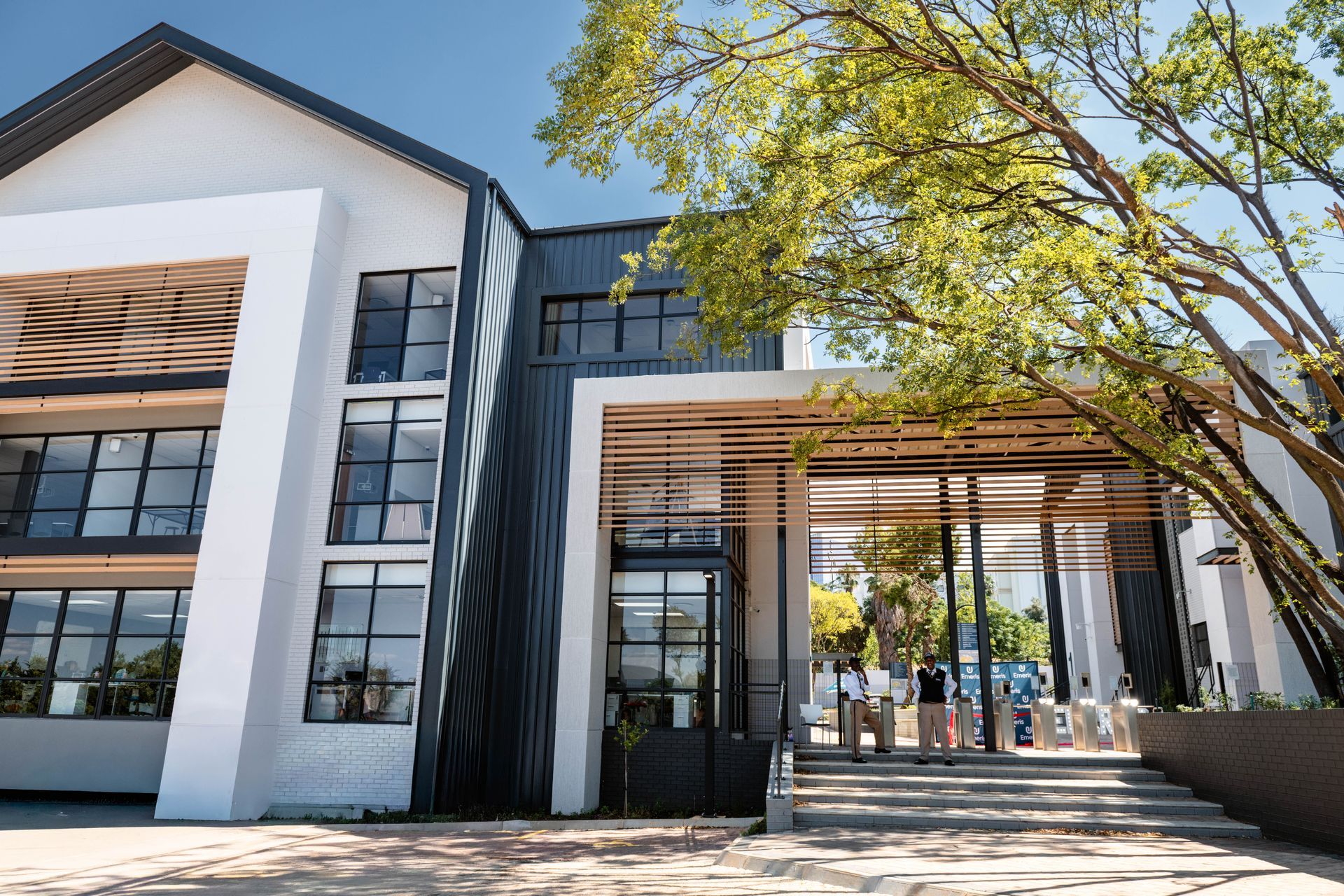
Emeris Sandton officially opened its doors on Wednesday, 3 February in what has come to be known as the richest square mile in Africa, bringing a state-of-the-art mega campus to the heart of Johannesburg. The R420 million, 47,000-square-metre campus represents one of the largest private investments in tertiary education in Gauteng, signalling a strong vote of confidence in the future of South African talent development. This landmark development marks the consolidation of The Independent Institute of Education’s Varsity College Sandton and IIE Vega School Bordeaux under one roof, now operating as Emeris and The Vega School at Emeris Sandton. With the opening of this new campus, Emeris now operates ten contact campuses and one online centre across South Africa’s major metropolitan areas. Emeris educated approximately 30,000 students in 2025.
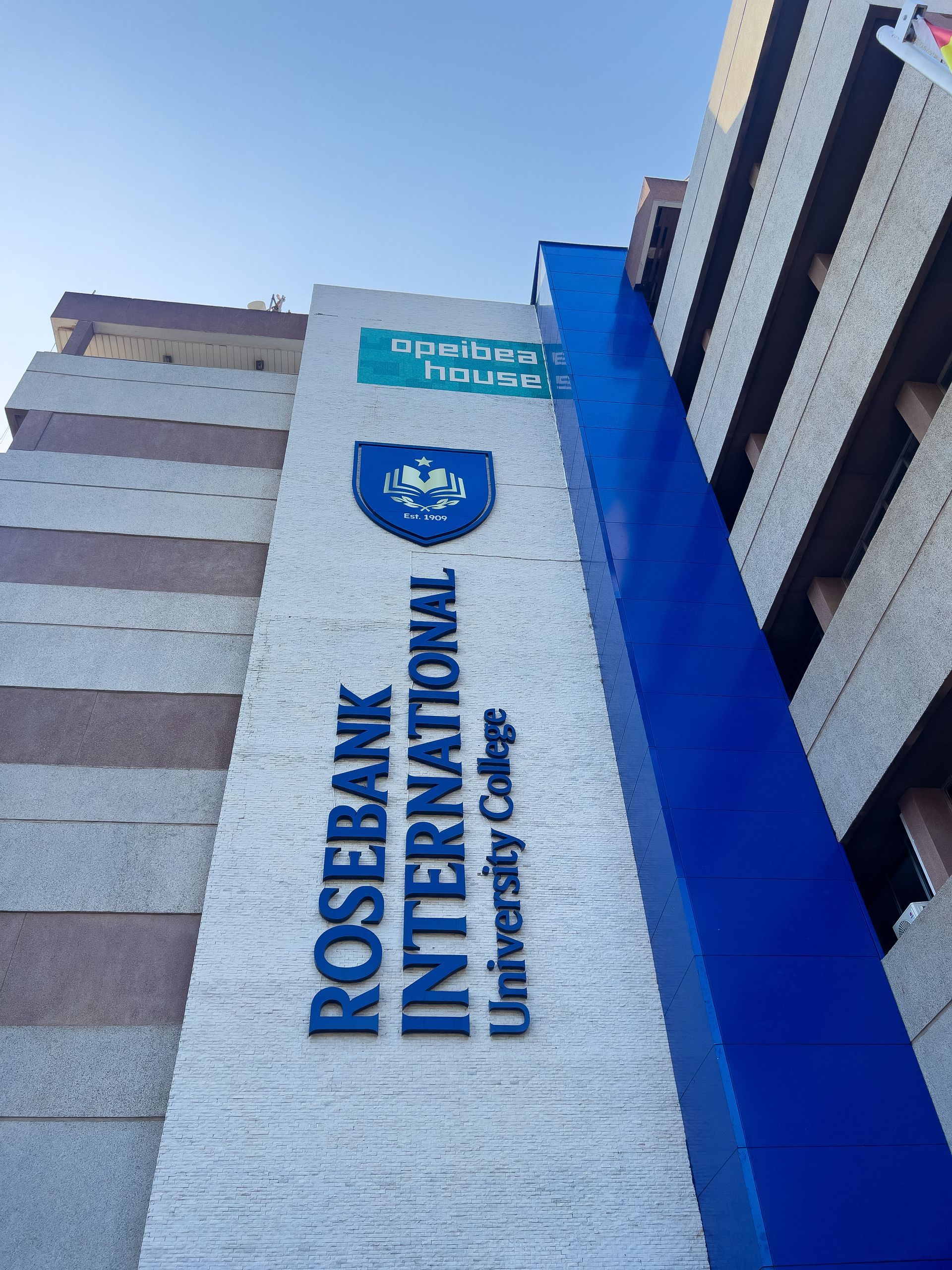
Rosebank International University College (RIUC), the groundbreaking institution launched last year by Africa’s leading private education provider, the ADvTECH Group, today proudly welcomed its inaugural cohort of students. Hundreds of exceptional first-time students, carefully selected from an overwhelming pool of more than one thousand highly competitive applications, have now officially commenced their transformative academic journey at RIUC . This select cohort now embarks on an unparalleled opportunity – one that will equip them with the advanced skills, cutting-edge knowledge, and innovative mindset essential to meet the evolving demands of the global workforce in the Fourth Industrial Revolution and beyond. Dr Linda Meyer, President of Rosebank International University College, and MD at The IIE’s Rosebank College and Waterfall School of Business (WSB), said: “Today marks an historic step as we welcome our pioneering inaugural cohort.” “Backed by ADvTECH’s pan-African vision, our accreditations, global partnerships, and GETFund support, RIUC is delivering inclusive, innovative education that prepares students for success in the Fourth Industrial Revolution and beyond, while rooting excellence in African leadership.” “As they step onto the modern campus in Accra for the start of the 2026 academic year, these pioneering students are not only beginning their higher education, but also contributing to a significant milestone in Ghana’s tertiary landscape.” “They are positioned to become future leaders, innovators, and global professionals who will drive meaningful progress both locally and internationally,” she added. RIUC offers accredited programmes across its faculties, including high-demand qualifications such as: Bachelor of Computer and Information Sciences Bachelor of Commerce in Supply Chain Management Bachelor of Hospitality Management Bachelor of Computer and Information Sciences in Application Development Bachelor of Information Technology in Business Systems Bachelor of Commerce in Digital Retail Entrepreneurship RIUC is truly positioned as a hub for global learning, boasting partnerships with: Ghana Tertiary Education Commission (GTEC) Capsicum Culinary Studio (endorsing culinary programs with global industry ties) Association of African Universities Golden Key International Honour Society (global network for high-achieving scholars) ADvTECH and Rosebank College South Africa “Our new students can look forward to international exchange programmes, immersive study abroad opportunities, and access to globally recognized qualifications,” Dr Meyer says. With limited remaining space, prospective students for 2026 and beyond are encouraged to register immediately—online at www.riuc.edu.gh/application—registration or by visiting the campus.
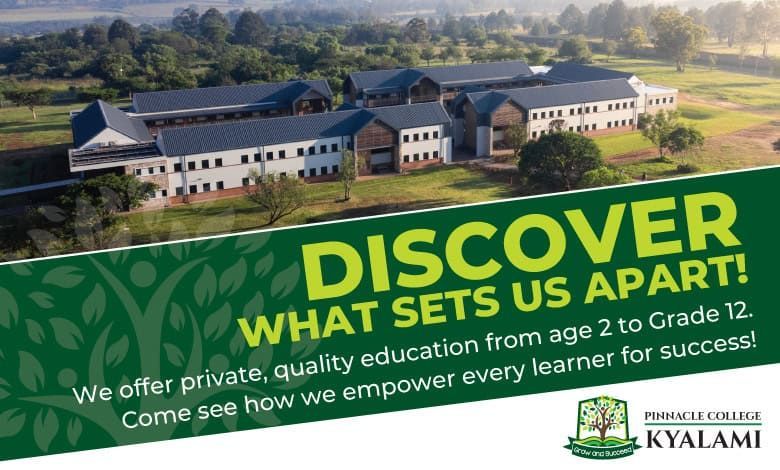
Pinnacle College Kyalami is a school intentionally designed for their community, one in which adaptability, digital fluency and human skills matter as much as academic knowledge. Its educational model blends strong academic foundations with innovation, personalisation and holistic development to prepare learners for futures that are still unfolding. A defining feature of the school is the purposeful integration of technology into everyday learning . Classrooms are equipped with modern digital tools that support interactive, blended and inquiry-based learning. From Grade 0, students are introduced to coding, robotics and computational thinking , helping them develop problem-solving skills, logical reasoning and creative confidence with technology, not as an add-on, but as part of the learning culture. In Grades 4 to 6, mathematics is supported by ADvLEARN , an AI-enhanced approach to learning that enables teachers to track learner progress with greater precision and tailor targeted support or extension to individual needs. This is further strengthened by the school’s Individual Education Plan (IEP) framework, ensuring that each learner’s academic, emotional and developmental needs are understood and supported in a structured, intentional way. Pinnacle College Kyalami also offers a boarding environment for up to 100 learners , providing a secure, nurturing and structured setting that extends learning beyond the classroom. Boarding supports independence, leadership and social development, while offering families a balanced blend of care, routine and opportunity. The campus itself is designed as a “playground for the future” , a space where curiosity is encouraged, collaboration is natural and learning is active. Through project-based work, interdisciplinary thinking and experiential opportunities, learners are supported to engage deeply, think critically and apply knowledge meaningfully. Together, these elements create a learning environment that is not only academically sound, but future-focused by design, developing learners who are confident, capable, adaptable and ready to thrive in a world of constant change. Pinnacle Colleges, a member of the ADvTECH Schools Division, is a leading provider of future-focused education from early learning through to high school. Guided by our promise of Focus for Success, we combine academic excellence with innovation to provide structured pathways and modern learning environments. Our mission is to be the leading school brand for students pursuing tertiary education. By integrating data-informed teaching and technology-enhanced learning, we partner with parents to nurture confident, values-driven young people. With a legacy of excellence and a commitment to personal growth, Pinnacle Colleges prepares students to thrive in a rapidly changing world.

Choosing a public university or private higher education institution is one of the most important decisions prospective students will ever make, and also one of the hardest. While hundreds of thousands of students have already been accepted into further study for 2026, many others still have to make the call before the official start of the academic year. For these students, and senior high students who will have to consider their next steps in coming months and years, it is important to look beyond the brochure, an education expert says. “For some, choosing a higher education institution is about a taking the first independent step. For others, it’s about returning to study after years in the workplace, fitting lectures around meetings, assignments around family life, and ambition around reality,” says Nadia Landman, Head of Academic Quality Management Systems at ADvTECH’s Independent Institute of Education. Landman notes that while open days help, and polished brochures showcasing impressive campuses reassure, prospective students should attempt to gain a good understanding of what everyday life will actually look like once the semester starts. WHEN REALITY HITS AND STUDENT SUPPORT BECOMES CRUCIAL The real test of an institution rarely happens in week one. It happens a few weeks in, when deadlines stack up, confidence dips, work pressures increase, and life doesn’t politely pause for assignments. “Every institution talks about student support,” says Landman, “but what matters is whether that support is visible and accessible when students begin to struggle, not only when they’ve already failed.” For parents, that may mean asking how an institution identifies first-year students who are falling behind and what support is then made available. For adult learners, it means asking different but equally practical questions: Who do I contact when work deadlines clash with assessments? How accessible are lecturers outside of office hours? Are sessions recorded and made available should I miss a lecture? Institutions that understand student reality, across ages and stages, can explain clearly how they support learners before pressure becomes a crisis. WHO IS ACTUALLY DOING THE TEACHING? Behind every qualification is a lecturer, or a team of lecturers, responsible for turning content into learning. Qualifications and experience matter. But so does engagement, responsiveness, and an understanding of who is sitting on the other side of the desk or screen. “Adult learners bring professional experience, practical questions, and limited time. Parents want reassurance that lecturers are not only knowledgeable, but attentive and accountable. Strong institutions support their lecturers to teach well, and they take student feedback seriously,” says Landman. WORKING WITH REAL-WORLD REALITIES Few people still believe that a qualification alone guarantees a career. Parents worry about employability and adult students worry about relevance. Both are asking the same underlying question: Will this programme help me adapt to a changing world? “Curricula should not be static documents. They should evolve with industry, technology, and society. Institutions committed to quality review their programmes regularly, involve industry voices, provide work integrated learning opportunities, and assess students in ways that reflect real-world complexity, not just academic theory,” says Landman. “The aim is capability, not just completion.” WHY QUALITY AND GOVERNANCE MATTER Accreditation, assessment moderation, and academic integrity may sound bureaucratic, but they quietly protect the value of the qualification, and the effort invested in earning it. “Quality systems aren’t about red tape,” says Landman. “They exist to ensure fairness, credibility, and consistency, whether you’re studying full-time straight out of school or part-time while working.” Institutions that take quality seriously are open about how these systems work and why they matter. One of the clearest signals is the quality of service of an institution. How quickly are emails answered? Are queries met with empathy or deflection? Is communication clear, honest, and respectful of people’s time? Over time, these everyday interactions reveal whether an institution is designed around systems, or around students with real lives. “Higher education is not a transaction. It’s a commitment – of time, energy, and belief in a better future. Parents may not walk the journey for their children. Adult learners may not have the luxury of starting over if things go wrong. In both cases, the choice of institution matters deeply,” Landman says. “When looking at your options, understand that the strongest institutions are not defined by the loudest claims. They are defined by their willingness to answer difficult questions openly, thoughtfully, and without hesitation. And it is in asking those questions, early, calmly, and with intention, that both parents and adult learners move beyond the brochure and towards a decision that truly supports success.” Note: Recent developments in national higher education policy are helping to bring greater clarity for prospective South African students. The Department of Higher Education and Training’s policy on the recognition of institutional types is designed to ensure that different kinds of higher education institutions are clearly defined, appropriately regulated, and transparent about what they are established to offer. For students and families navigating an increasingly complex higher education landscape, this clarity will support more informed decision-making, helping them choose institutions that are aligned with their academic goals, life circumstances, and preferred mode of study, rather than relying on assumptions or labels. Policy implementation can only proceed once regulations are published.

JSE-listed ADvTECH is celebrating another year of outstanding academic performance following the release of the 2025 IEB Matric results. Three of the group’s schools – Crawford Sandton, Crawford La Lucia, and Glenwood House were ranked in the top ten co-educational schools. Across its 103 South African schools, ADvTECH’s pass and bachelor’s pass rates for 2025 were 99,7% and 94,0% respectively, with an impressive 3 371 distinctions at an average of 2,1 per student. 16 students from the ADvTECH group were recognised for Outstanding Performance by the IEB and a further 14 for Commendable Achievement. Significantly, while the national IEB average dropped year-on-year, ADvTECH’s pass rate increased by 0.3%. “Another strong set of results was achieved by our schools in 2025. We congratulate our students and teachers for their commitment and dedication”, commented Desiree Hugo, Academic Head: ADvTECH Schools. Hugo says that the group’s performance is the result of a number of initiatives introduced over the past few years. "ADvTECH has invested significantly in AI enhanced personalised learning and teacher training, ensuring that each student achieves their full potential. With a strong analytical focus on academic data, we have been able to ensure improvement for every student. We continue to strive towards consistently superior outcomes, leading the way with global best practice in education." Hugo added that a special note of congratulation was due to The Bridge Assisted Learning School in Lonehill, whose first Matric cohort achieved an impressive 100% pass rate. ADvTECH’s schools' brands include Crawford International, Pinnacle Colleges, Trinityhouse Schools, The Bridge Assisted Learning School, Evolve Online Schools and Abbotts Colleges.

ADvTECH Limited (Incorporated in the Republic of South Africa) (Registration number 1990/001119/06) Share code: ADH ISIN: ZAE000031035 (“ADvTECH” or “the Company”) DEALINGS IN SECURITIES BY A DIRECTOR OF A MAJOR SUBSIDIARY OF THE COMPANY AND AN ASSOCIATE OF SUCH DIRECTOR In compliance with the JSE Limited Listings Requirements the following information is disclosed in respect of dealings in ADvTECH securities by a Director of a Major Subsidiary of the Company and an associate of such a Director.
